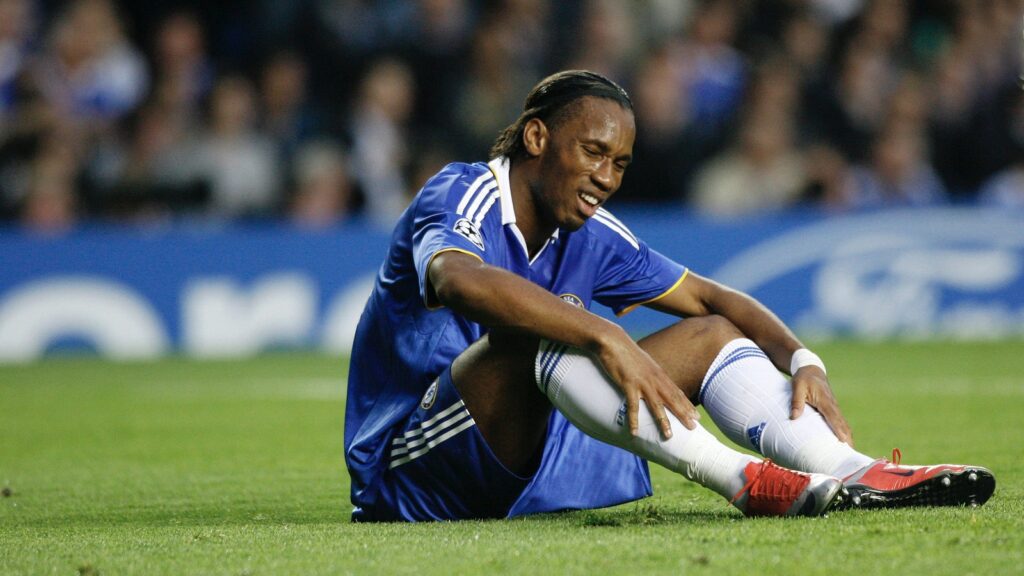Few matches linger in memory as long as Chelsea’s second-leg UCL semi-final against Barcelona in 2009. Played on 6 May 2009 at Stamford Bridge, it had everything. The match bore emotional highs, tactical genius, and a tempest of refereeing controversy. For Chelsea, it will forever be a night of what-ifs. But for Barcelona, it was the start of their sextuple-winning glory.
Setting the Stage
The first leg at the Camp Nou had been 0-0, with all to be resolved in London. Chelsea, under Guus Hiddink, had been impressively resilient in damaging Barcelona’s passing. The return leg threatened fire, and the atmosphere at Stamford Bridge was charged from the first whistle.
Chelsea began at a brisk pace. Within the ninth minute, Michael Essien unleashed a thumping left-foot volley from near the edge of the box, a strike which is still played in repeat highlights. The early goal had an effect on the tactics. Chelsea could now sit back, defend in depth, and hope for counter-attack chances, while Barcelona would have to play catch-up.
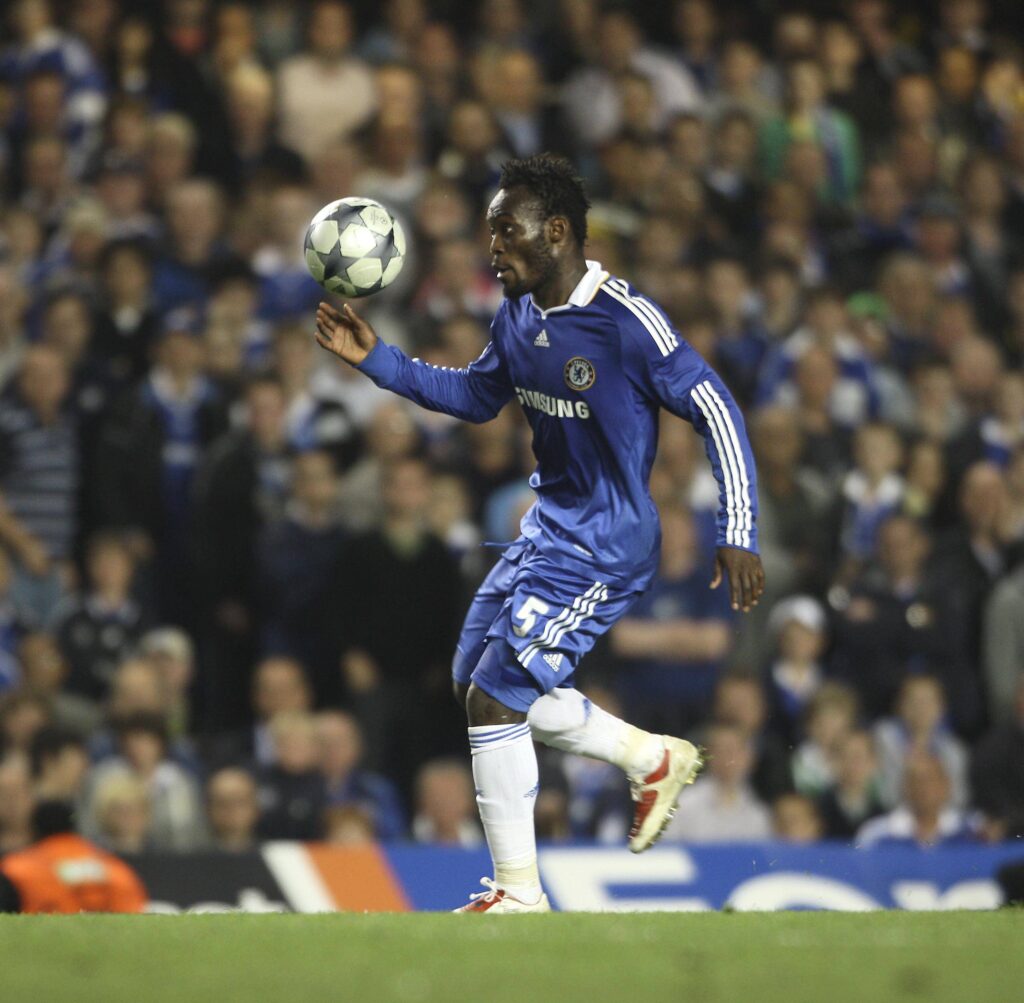
The battle wasn’t merely an emotional one; it was a game of chess. Chelsea set out with a tight 4-3-3, orderly in defense. John Terry, Alex, and Ashley Cole worked as tireless space-closers, while Michael Ballack and Frank Lampard patrolled the midfield lanes. Hiddink’s strategy was evident – absorb pressure, retaliate with power and speed.
Barcelona, under Pep Guardiola, were starting to develop their era-defining “tiki-taka” approach. Possession was held by Xavi and Andrés Iniesta, Lionel Messi drifted from the right flank, and Samuel Eto’o operated centrally. But for most of the match, Barcelona’s elaborate passing was thwarted by Chelsea’s resolute block.
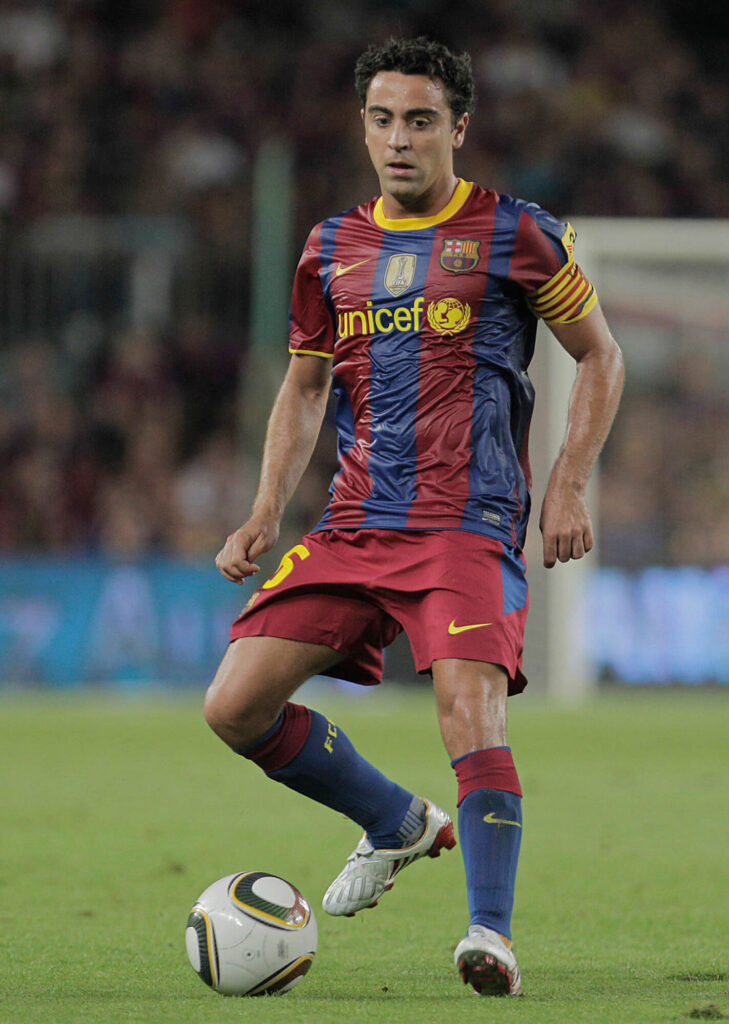
With Essien’s goal on the board, Chelsea were in charge for much of the evening. Barcelona dominated possession but had few real chances. The suspense was not in the availability of chances but in the theatrics of refereeing calls that punctuated the evening.
The Refereeing Storm
Referee Tom Henning Øvrebø soon emerged as the evening’s most divisive character. Chelsea believed they were kept from scoring a number of clear penalties. Abidal‘s tackle on Didier Drogba, Piqué‘s handball, and an afterthought handball by Samuel Eto’o within the penalty area all incited outraged appeals. On each occasion, Øvrebø allowed play to continue, fueling both the fury on the field and the supporters’ stands.
For Chelsea players and supporters, such rulings seemed injustice upon injustice. Drogba himself seemed stunned, throwing his arms up in shock. Michael Ballack became infamous after chasing the referee down the pitch following his stoppage-time penalty request being denied, screaming in anguish.
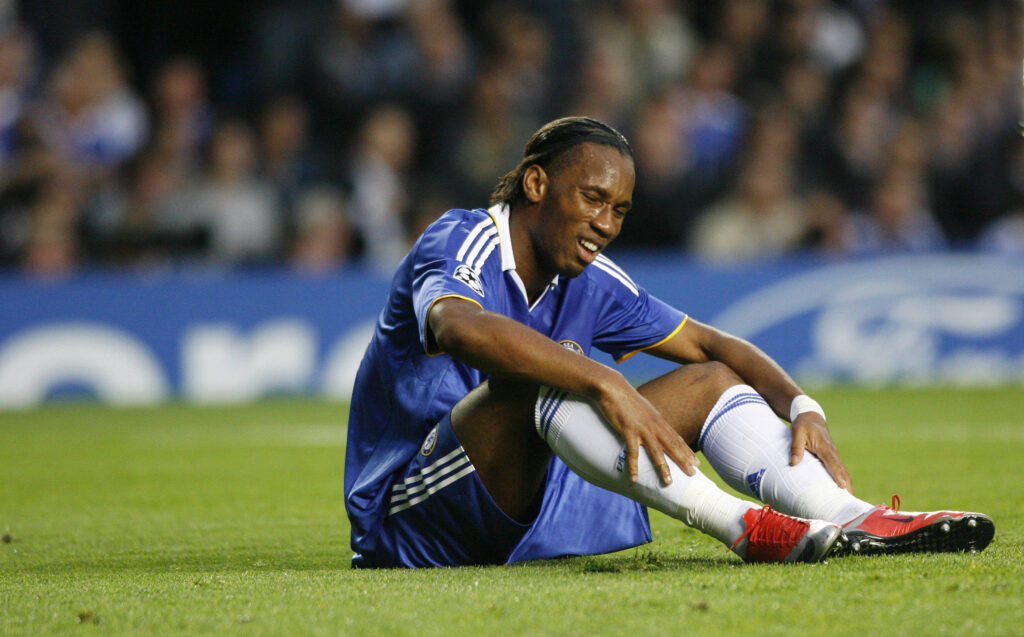
Barcelona, however, retained their calm and persevered, knowing a single goal would do it.
The Moment of Magic
Then arrived the 93rd minute. With Chelsea seconds from making it into the final, Lionel Messi broke into space just beyond the Chelsea box and played a pass to Iniesta. In one swoop of his right foot, Iniesta unleashed a curling shot into the far top corner. Petr Čech rooted to the spot as Stamford Bridge was suddenly silent. Barcelona’s players sprinted in ecstasy, aware that they had nicked a spot in the final with almost the final kick.
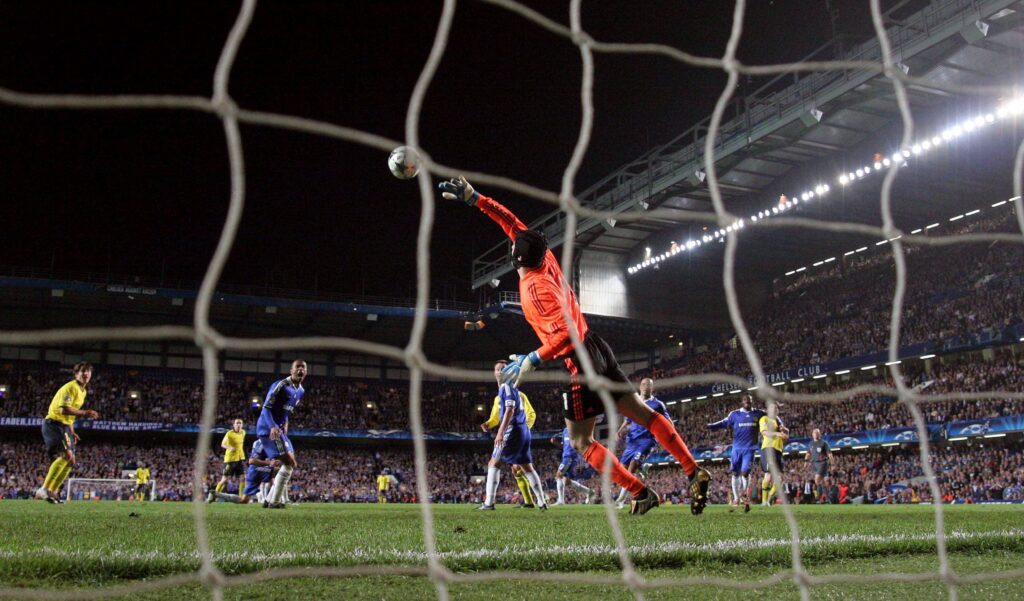
It was devastating for Chelsea. For all their defensive work, tactical discipline, and near-misses, one moment had undone it all. The emotional rollercoaster became raw anger as the final whistle sounded.
Aftermath and Reactions
Post-match scenes were turbulently chaotic. Drogba confronted the referee in fury, subsequently yelling into TV cameras: “It’s a disgrace!” Ballack required teammates to hold him back. Chelsea supporters expressed outrage at calls they believed deprived them of a rightful final. UEFA later disciplined Drogba and Ballack for their outbursts but the row never really dissipated.
Barcelona, on the other hand, welcomed it as fate. Iniesta’s strike became emblematic of their tenacity and faith. Guardiola’s team would go on to defeat Manchester United in the final, heralding the beginning of their golden era. They also became the first team in history to win a sextuple in a single season.
The Broader Debate
The game itself fueled broader discussions surrounding refereeing standards in top-level football. Øvrebø himself later conceded errors, although he was adamant he had been impartial. The match became a case study in the way the decisions of one referee can decide the course of football history. Demands for VAR intensified in subsequent years, with this semi-final being frequently held up as an example of the potential for technology to rectify human error.
From a strategic standpoint, Chelsea’s strategy was justified. They were defensively excellent and clinically dominant until stoppage time. For neutrals, the contrast between Chelsea’s strength and Barcelona’s passing excellence made the game an intriguing duel of soccer philosophies.
A Night That Changed Narratives
A. decade on, the 2009 semi-final is still ingrained in football history. For Chelsea, it lingers as a bitter memory—a sort of mythical night of lost justice. For Barcelona, it was the platform to greatness. And for the rest of the footballing universe, it’s one of the most dramatic and emotionally taxing matches in Champions League history.
